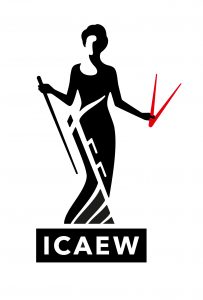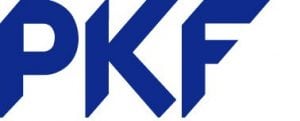You can train to become a chartered accountant at a variety of leading employers in different industries. It’s important that you understand your own values and what you want from your career.
Where do I start?
As a graduate, accountancy has numerous points of entry. Most high-level university graduates will join one of the ‘Big Four’ professional services firms – EY, PwC, KPMG and Deloitte.
The ‘Big Four’ firms all have structured training programmes with a definitive progression route to director or partner, and one of the attractive aspects of this route is sponsorship whilst you obtain your qualifications. Consequently, starting out with one of the major public accountancy firms is an obvious choice for most graduates.
There are four main qualifications for accountancy professionals – Chartered Tax Adviser (CTA), Association of Chartered Accountants (ACA), Association of Chartered Certified Accountants (ACCA) and Association of Tax Technicians (ATT). The ‘Big Four’ will usually sponsor and support you through ACA and/or CTA.
Even though the ‘Big Four’ are the leading accountancy practices, there are other accountancy firms that offer excellent structure, training, and progression. Firms such as Grant Thornton and BDO, often referred to as ‘mid-tier’, are an option for you as a graduate moving into accountancy. As with the ‘Big Four’, these firms will support and often sponsor you through your accountancy qualifications.
What if I don’t want to work for an accountancy firm?
There is no denying most new graduates will start out with the ‘Big Four’ or top-tier accountancy firms, but opportunities do exist with ‘in-house’ accountancy departments. It should be remembered, that to get your ACA you must satisfy certain requirements, such as a minimum of 450 days’ work experience. By contrast, the CTA, ATT and ACCA and some other qualifications can be completed by anyone with or without a set amount of experience in tax or accountancy.
Outside accountancy firms and in-house accountancy departments there are opportunities to start your career from a legal domain. This will mean specialising in tax and qualifying as a solicitor first (except for at some of the larger firms where CTA training may be possible).
Following your qualifications, the opportunity to move up towards partner and/or move in-house to work in the accountancy field is possible. In fact, across Europe and outside the UK, most of accountancy professionals start out as qualified solicitors as opposed to qualified accountants.
What will I do?
The work you will do within accountancy will vary depending on your chosen route.
Big Four
As previously mentioned, the ‘Big Four’ offer a very structured and supportive road to graduates. Starting out you will usually be asked to state a preference as to what area of accountancy you are interested in working in (Financial Services, Large Corporate, Indirect Tax, Employment Tax, and Private Client amongst others) and you will then progress within these areas to further your knowledge.
The ‘Big Four’ do offer a rotation system, which gives you exposure to different areas within accountancy (for example, you could work for six months in Indirect Tax and then rotate to another department).
Mid-tier
Mid-tier firms will offer a very similar path as the ‘Big Four’, although they are not as large or specialised in structure. Once again you will be asked to select a preferred area of accountancy, working in this area throughout the three years needed to gain your qualification.
In-house
Working in-house will be far less structured than at one of the accountancy firms. Quite often the work you will be doing will be more autonomous, with less guidance. Rather than being given work to complete, the onus will often be on you to build your profile and the profile of accountancy within the business. Arguably, the benefits are that you will be more commercially aware, closer to the business and you will see accountancy projects through from start to finish, rather than just small parts of a larger project.
It is important to remember that if you start your career in an accountancy firm, systems and procedures are in place to allow you to study and complete your exams with the minimum amount of disruption.
Often with in-house accountancy departments the expectation to study, take your exams and ensure your day-to-day work is not affected will fall to you directly. That said, larger companies such as FTSE20 organisations are becoming more equipped to provide the same support available within the accountancy firms.
You can see a breakdown of accountancy firms here.



